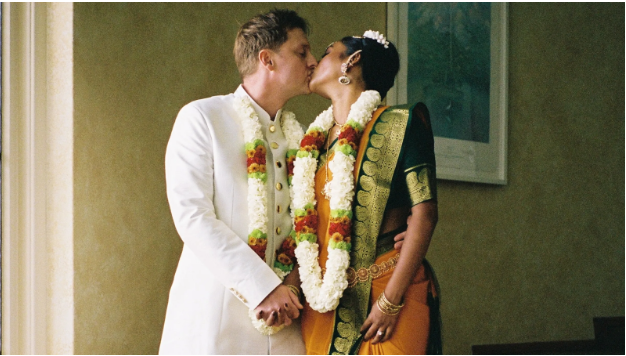Cross cultural weddings are a celebration of love that transcends boundaries, blending traditions, customs, and backgrounds to create a unique and memorable union of different wedding traditions around the world. In an increasingly interconnected world, these weddings have become more common, reflecting the global nature of love.
This article delves into the fascinating world of cross cultural weddings, exploring their significance, challenges, and the beauty they bring to the diverse tapestry of human relationships.
The Significance of Cross Cultural Weddings
Cross cultural weddings are more than just a union of two people; they symbolize the fusion of two worlds, two families, and two sets of traditions.
These weddings are a testament to the power of love, showing that it knows no borders, languages, or cultural divides. They foster an atmosphere of inclusivity and diversity, celebrating the richness of our global society.
- Embracing Diversity: Cross cultural weddings promote cultural diversity and acceptance. They offer a platform for people from different backgrounds to learn about and appreciate each other’s cultures. As family and friends come together to celebrate, they are exposed to new customs, foods, languages, and rituals, promoting understanding and tolerance.
- Global Connectivity: In today’s interconnected world, people often find love across borders. Cross cultural weddings reflect the global nature of modern relationships, demonstrating that love can flourish regardless of geographical distances.
- Unique Celebrations: Cross cultural weddings create truly unique and memorable celebrations. They blend various elements from each culture, resulting in ceremonies and receptions that stand out for their rich tapestry of traditions, colours, and flavours.
Challenges Faced in Cross Cultural Weddings
While cross cultural weddings are beautiful, they are not without challenges. Navigating the complexities of blending different cultural practices and expectations can be daunting, but it is often a rewarding journey.
- Communication: Effective communication is crucial in cross cultural weddings. Language barriers can lead to misunderstandings, so couples often need to find creative ways to bridge the gap. This might involve hiring interpreters or relying on multilingual friends and family members.
- Cultural Sensitivity: Being sensitive to cultural differences is essential to avoid unintentional offence. Couples must learn about and respect each other’s customs and traditions. This includes understanding the significance of rituals, dress codes, and family dynamics.
- Logistics: Planning a cross cultural wedding can be logistically challenging. Couples may need to source specific cultural items or arrange for special services that are not readily available in their location. This can add complexity to the wedding planning process.
The Beauty of Cross Cultural Weddings
Cross cultural weddings bring a unique blend of beauty, diversity, and love. Let’s explore some of the aspects that make them exceptionally enchanting.
- Colourful Attire: Cross cultural weddings often feature vibrant and diverse wedding attire. From intricate Indian saris and henna-adorned hands to elegant Chinese qipaos and traditional Western white gowns, these weddings are a feast for the eyes.
- Fusion of Traditions: The fusion of traditions in cross cultural weddings results in creative and unforgettable ceremonies. Whether it’s combining Hindu and Christian rituals or weaving together Japanese tea ceremonies with African dance, the possibilities are endless.
- Culinary Delights: Food plays a central role in cross cultural weddings. Guests are treated to an array of international dishes, reflecting the diverse backgrounds of the couple. The culinary journey is not just delicious but also a cultural experience.
- Unity in Diversity: Cross cultural weddings showcase the unity that can be found in diversity. They remind us that love transcends cultural boundaries and that people from different backgrounds can come together to celebrate love.
Real-Life Stories of Cross Cultural Weddings
To illustrate the beauty and significance of cross cultural weddings, let’s explore a few real-life stories:
- Maria and Raj: Maria, a Mexican, and Raj, an Indian, met while studying abroad. They decided to have a cross cultural wedding with parsi wedding traditions that incorporated elements from both their cultures. The result was a vibrant celebration featuring mariachi bands and traditional Indian dance performances. The fusion of colours, music, and traditions left guests in awe.
- Elena and Kenji: Elena, an American, fell in love with Kenji, a Japanese artist. Their wedding was a blend of Western and Japanese customs. They exchanged vows in a serene Japanese garden and later enjoyed a traditional American-style reception with a wedding cake and dance floor.
- Nadia and Ali: Nadia, a Pakistani, and Ali, an Egyptian, embraced their diverse backgrounds in their cross cultural wedding. The ceremony included elements from both Islamic and Coptic Christian wedding rituals. The couple exchanged vows under a canopy adorned with flowers and symbols from both cultures, symbolising their unity.
Read More:- Choosing the Best Shampoo for Damaged Hair
Conclusion
Cross cultural weddings are a celebration of love, diversity, and unity. They showcase the beauty of blending traditions, customs, and backgrounds, creating unforgettable moments that resonate with couples and their guests alike. While these weddings come with their challenges, the rewards far outweigh the difficulties.
They serve as a testament to the power of love that knows no boundaries, and they enrich our global society by fostering understanding and appreciation among cultures.
In a world where connections transcend borders, cross cultural weddings stand as a symbol of hope, love, and the beauty of embracing our differences. So, let’s continue to celebrate love across cultures and appreciate the unique tapestry of human relationships that it creates.
